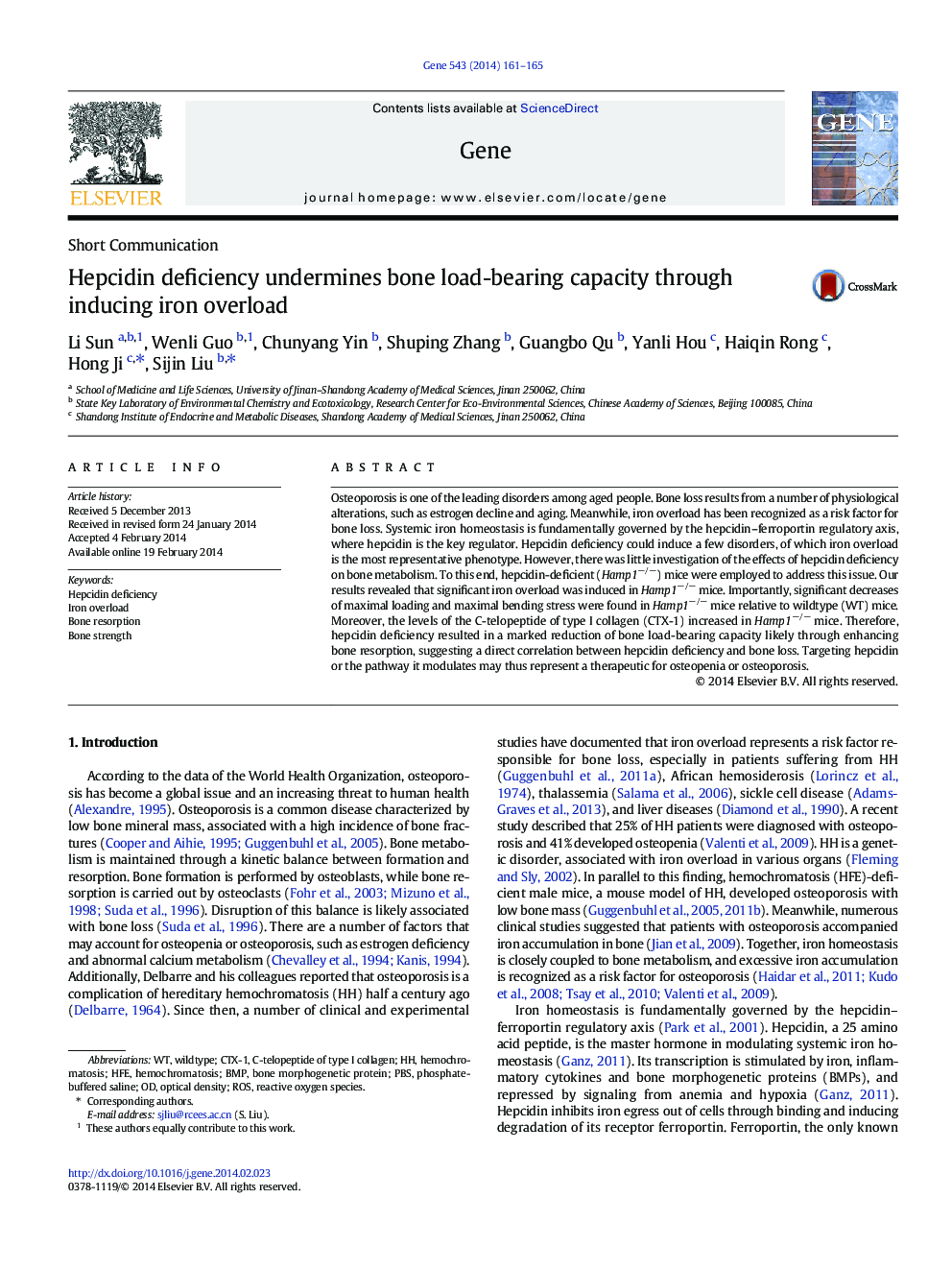| کد مقاله | کد نشریه | سال انتشار | مقاله انگلیسی | نسخه تمام متن |
|---|---|---|---|---|
| 2816363 | 1159928 | 2014 | 5 صفحه PDF | دانلود رایگان |
• Hepcidin deficiency leads to enhanced bone resorption.
• Loss of hepcidin is associated with bone loss.
• Hepcidin deficiency undermines bone biomechanical properties.
Osteoporosis is one of the leading disorders among aged people. Bone loss results from a number of physiological alterations, such as estrogen decline and aging. Meanwhile, iron overload has been recognized as a risk factor for bone loss. Systemic iron homeostasis is fundamentally governed by the hepcidin–ferroportin regulatory axis, where hepcidin is the key regulator. Hepcidin deficiency could induce a few disorders, of which iron overload is the most representative phenotype. However, there was little investigation of the effects of hepcidin deficiency on bone metabolism. To this end, hepcidin-deficient (Hamp1−/−) mice were employed to address this issue. Our results revealed that significant iron overload was induced in Hamp1−/− mice. Importantly, significant decreases of maximal loading and maximal bending stress were found in Hamp1−/− mice relative to wildtype (WT) mice. Moreover, the levels of the C-telopeptide of type I collagen (CTX-1) increased in Hamp1−/− mice. Therefore, hepcidin deficiency resulted in a marked reduction of bone load-bearing capacity likely through enhancing bone resorption, suggesting a direct correlation between hepcidin deficiency and bone loss. Targeting hepcidin or the pathway it modulates may thus represent a therapeutic for osteopenia or osteoporosis.
Journal: Gene - Volume 543, Issue 1, 10 June 2014, Pages 161–165
